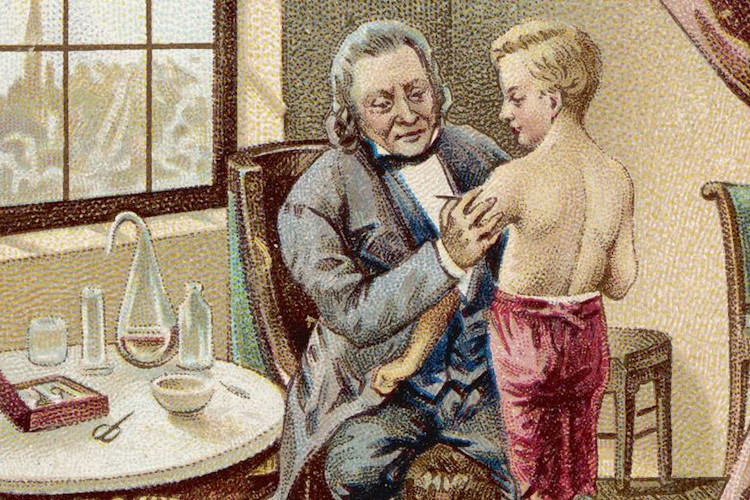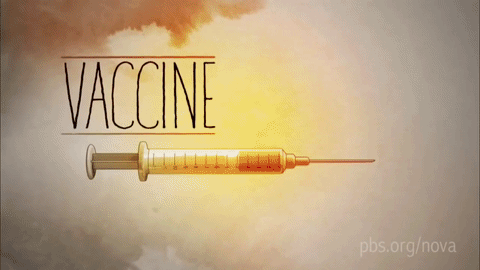Why should we get vaccinated?
According to experts, vaccination is a measure of health protection is very important for themselves and the community.
Vaccine is a great invention in medical history, contributing to saving more than 2 million lives every day. During the past two centuries, vaccines have repelled chickenpox, reduced child mortality and prevented an unacceptable number of neonatal disabilities that could occur like fever due to fever.
Important is that, but have you ever wondered how the vaccination is really working?
The history of the vaccine
Since 1798, hundreds of thousands of people have died every year because of smallpox. Then British scientist Edward Jenner suddenly realized that milking farmers who had been infected with smallpox in cattle (a less dangerous form of the disease) would not be infected in humans anymore.
Later, he used pathogens in cows to create antibodies against this deadly disease. This is the birth of the first vaccine in the world.

Edward Jenner - who created the first vaccine in the world.
Next in 1885, Louis Pasteur's rabies vaccine opened an unprecedented medical revolution. Vaccine achievements are in turn, repelling seemingly devastating diseases such as diphtheria, tetanus, anthrax, cholera, plague and tuberculosis.
Since the 30s of the last century, thanks to the development of molecular biology and microbiology, scientists have improved the modulation method, creating more and more vaccines against major diseases encountered in children. children, such as measles, mumps and rubella.
They are still learning and researching daily to create new achievements, all for the sake of improving public health.
Why do experts recommend vaccination?
The vaccine , according to WHO's definition, is "a probiotic product that boosts immunity to certain diseases."
A vaccine usually contains agents like pathogenic microorganisms, but in a weaker form. This agent stimulates the body's immune system to remember and create antibodies, thereby helping to counteract all the same agents that we encounter later.

Pathogens have weakened in vaccines injected into the body.
In other words, vaccines can cause the body to remember what to kill, but not as harmful as natural pathogens.
It is like an exercise for the immune system, so that they can remember and create an immune response faster, stronger and more effective the next time, when the body comes into contact with the causative agent.

The immune system response.

"Memory" cells will help the body create a better immune response.
In answer to the question "why do everyone recommend vaccination" , the answer is "prevention is better than cure". Vaccination helps the body make antibodies first, instead of hunching over when the disease knocks on the door, it may not be successful. In addition, the vaccine has an extremely important function, which is to create "community immunity."
If there are enough people vaccinated against a certain type of illness (usually in about 83-85% of the community), it will be very difficult to spread and will be gradually cleared.

Community immunity helps to eliminate epidemics.
However, it is important to know that vaccines are not absolute. There is still a small percentage of people who have received injections but can still get sick (usually 1% - 2%).
In addition, some cases of ineligibility are not injected. For example, the body is sick, high fever, allergy . These factors need special attention for babies.
- Who needs a flu shot?
- The US advised those who were born before 1989 to get the measles vaccine again
- 35 million poultry have been vaccinated
- China initially tested the AIDS vaccine successfully
- Have been vaccinated or have ever had measles still
- Half of the US population needs to be vaccinated against influenza A / H1N1
- Should pregnant women get vaccinated against pertussis?
- Xót far from chicken farming
- WHO opens new anti-polio campaign
- The bird flu spreads strongly in China
- Inject with tape
- Prevention of chickenpox
 Green tea cleans teeth better than mouthwash?
Green tea cleans teeth better than mouthwash? Death kiss: This is why you should not let anyone kiss your baby's lips
Death kiss: This is why you should not let anyone kiss your baby's lips What is salmonellosis?
What is salmonellosis? Caution should be exercised when using aloe vera through eating and drinking
Caution should be exercised when using aloe vera through eating and drinking